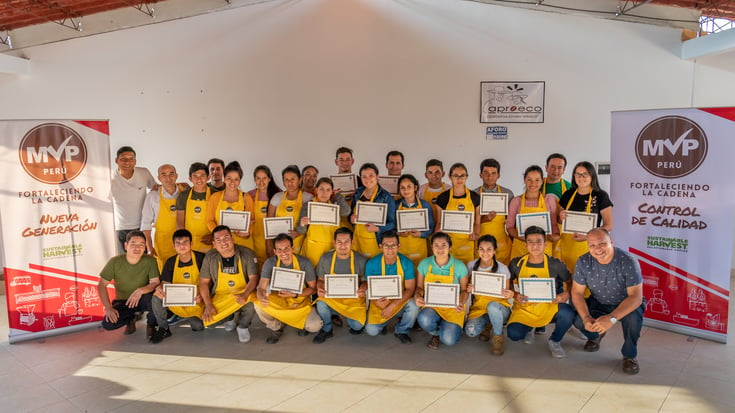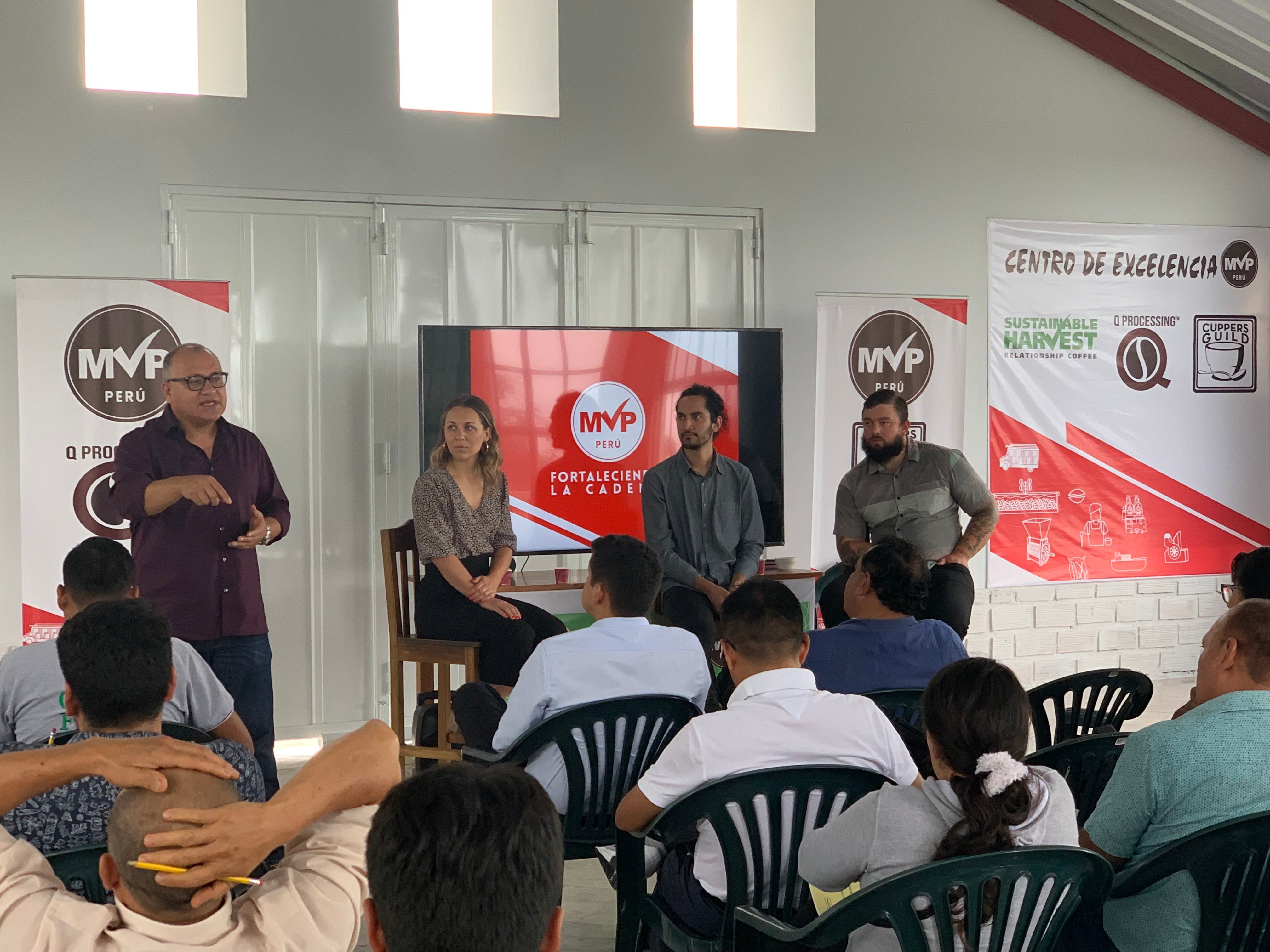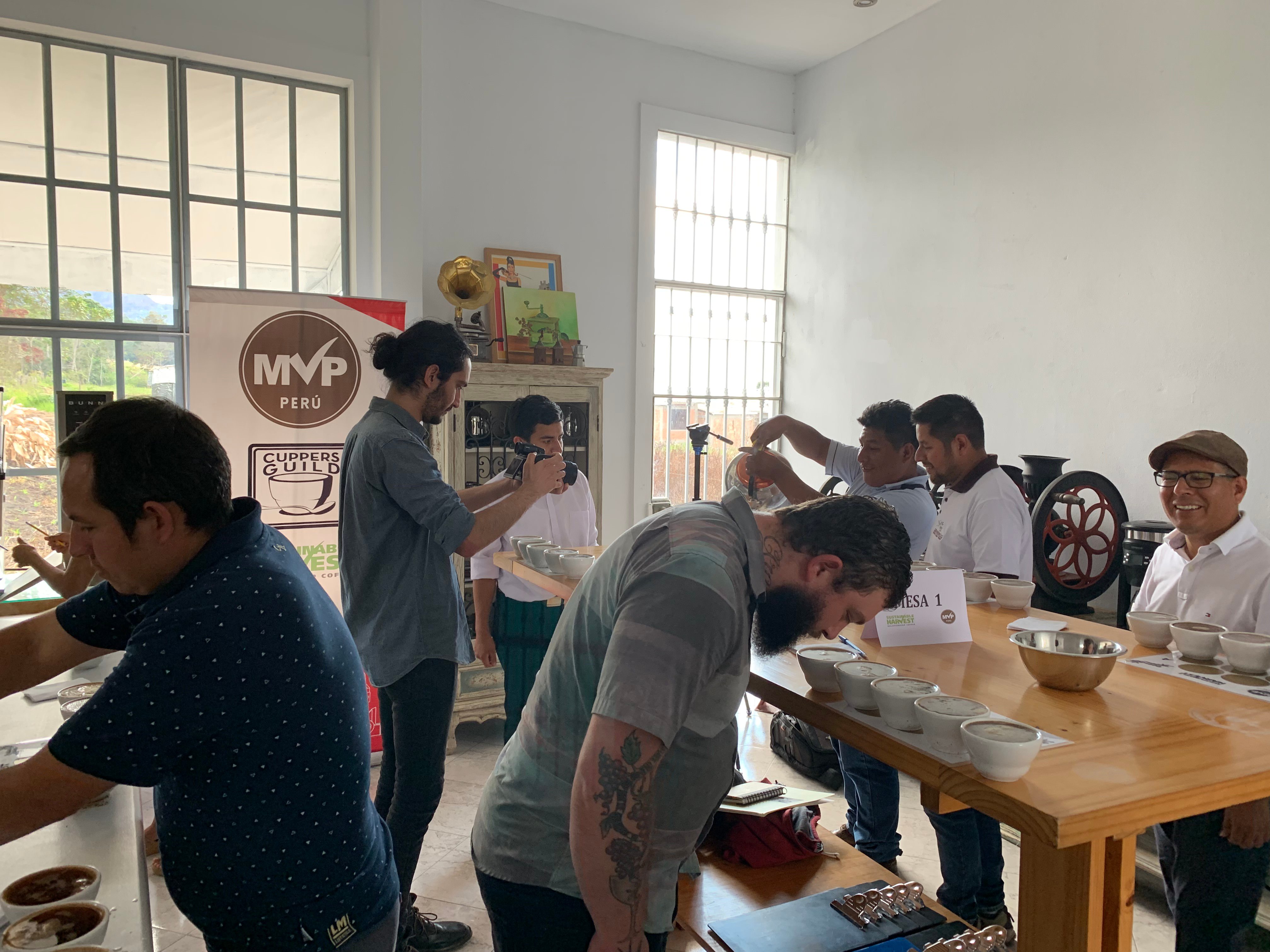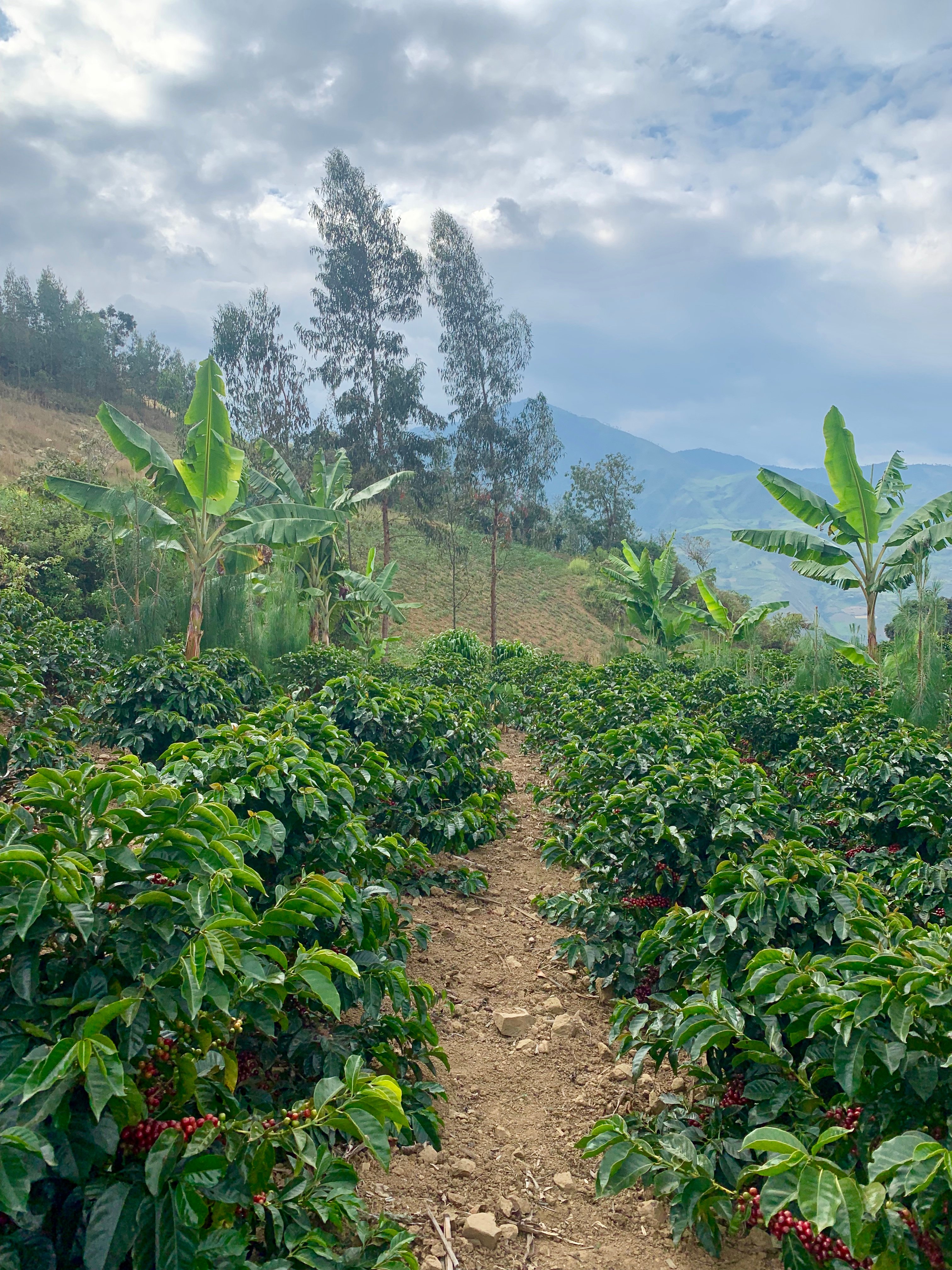
In August of 2019, we hosted an MVP training event for our producer partners in Peru, one of the many MVP events that Sustainable Harvest hosts in producing countries throughout the year. In addition to folks from Augie's Coffee and Gimme!, several of our staff from our Portland headquarters
joined for the trip: Monica Terveer, our Director of Sales, Yimara Martinez, our Quality Control Specialist, and Levi Rogers, our Quality Control Coordinator. It was Levi's first trip with Sustainable Harvest since joining the team. Below is a recount of his experience in Peru and insight into our MVP program.
______________________
After two flights and ten hours crammed in airplanes, we make it to Lima at 6:30 in the morning. We cross a highway to drop our things off at the Holiday Inn and then proceed to do some sightseeing around the city. The whole city of Lima overlooks the cloudy and foggy sea as steep cliffs, brown hills, and palm trees drop off towards the ocean. We are in the southern hemisphere in winter—something I had forgotten about—and while it is not quite raining, the whole air is filled with mist and the sidewalks are wet. Mist and fog hug our bodies as we walk around.
The next morning we fly two hours from Lima to Tarapoto, and then all fall asleep in the back of the car as we make our way through the hills to the town of Moyobamba. We arrive at our beautiful hotel, Fonda Alegria, where we drop our bags and take a little "descanso".
"Peru is a country of co-ops. Rather than competing with each other, many co-ops have a shared sense of success and failure."
We are here in Moyobamba in the San Martin region of Peru to conduct training for Sustainable Harvest’s “MVP” or “Most Valuable Producer” training program. Monica Terveer is here as well as Tim Maestas, roaster and green buyer for Augie's Coffee, and me—co-founder of La Barba Coffee in Salt Lake City and now quality control coordinator at Sustainable Harvest. Liz Clark from Gimme! Coffee will be joining us soon, but bad weather on the East Coast has delayed her flight by a day.
Sustainable Harvest developed the MVP Program to connect roasters to exceptional suppliers and their coffees. The program supports the MVPs as they work to maintain their high level of performance, innovate their coffee and operations to adapt to the ever-changing market trends. These training events are a central focus of the program; in 2019, Sustainable Harvest hosted 16 MVP trainings reaching 332 producers from seven countries. Our producer partners are always eager to take part, as are our roasting partners; it's a chance for them to meet and learn about each other's needs and share crucial knowledge.
We are scheduled to spend two days hosting and participating in this MVP training and another two days hosting a Q processing Level 1 Course taught by our very own Yimara Martinez Agudelo.

We start bright and early at 8:00 on Monday morning checking people in. Oscarin Gonzalez, Sustainable Harvest's Supply Director for Peru, introduces the program. Oscarin is based in Lima, but spends half his time in his hometown of Moyabamba. His entire life revolves around coffee and he’s been working with Sustainable Harvest for over 16 years. Oscarin welcomes the crew, making everyone feel at home.
We have roaster presentations where we chat with producers in Peru about our roasteries. The goal here is to have roasters share with producers how they began their business, what they’re looking for in a coffee, and current trends in the coffee market. The importance of connection and exchange between roasters and producers cannot be overstated. Many of these producers, farmers and co-op members have never been to the U.S., nor do they understand the market or business models we operate. Likewise, many roasters do not understand the market and business of trying to produce coffee at origin.
"The producers are always eager to take part as are our roasting partners; it's a chance for them to meet and learn about each other's needs and share crucial knowledge."
Monica leads a roaster panel talking about the future and the “fourth wave” of coffee, some of which includes talk of processing methods new to some of the producers like honey, natural, or anaerobic fermentation. I notice that some of the producers and co-op members do not seem particularly excited with where this is going. One producer stands up and comments that he is apprehensive of the increased demands for higher quality or uniquely processed coffees since the C-price has only been trending downward regardless of quality, making them wary of investing more money into their farms. In short, why spend more money to make better quality coffee when no one is offering you an increase in price? Fair questions. This is a concern that has continued to beleaguer producers: it's not that they don't want to invest in quality, but they need assurance that their efforts will pay off.
Yimara and Oscarin jump in to remind them that despite any trends, consistency and quality are key to producing great coffee, and differentiating through new processing methods should be approached responsibly and in increments, as proof of concept for new market opportunities. "Each producer has their own strength," says Oscarin. "Some have different varietals and high cup scores—others have volume. But in both cases, lots can be rejected if not enough attention is paid to the quality of the product."

Peru is a country of co-ops. Rather than competing with each other, many co-ops have a shared sense of success and failure. This dynamic plays out throughout the course of our conversations.
One major problem in 2019 in Peru was the prevalence of phenol. It had been so wet in the country during the drying/harvest phase of the coffee, that it took a toll in quality, as many places didn't have enough capacity to dry coffees properly. Lack of proper drying, condensation, and blending beans of different moisture contents can all contribute to phenol development. If you’ve never tasted phenol in the cup (count yourself lucky, most producers are familiar with it, but many roasters aren’t) it has a dry, chlorine-like taste that will ruin a batch of coffee.
"'Each producer has their own strength,' says Oscarin. Some have different varietals and high cup scores—others have volume. But in both cases, lots can be rejected if not enough attention is paid to the quality of the product.'"
Identifying issues like this is one of the main reasons why these MVP trainings are so important—and not just for the producers, but for everyone to understand the huge challenges producers overcome so consumers don't taste phenol in their coffee.
We host these MVP trainings to equip our producers with the knowledge to help them through this ever-shifting global landscape—issues of quality control in the case of phenol, crop diversification, building climate resilience, and other current trends in the global market they might need to be aware of. The world is always evolving.
With the threat of climate shocks and ever-fluctuating market prices, we’ve found that producers need to embrace a creative vision for their future. This includes ensuring their own stability through crop and agricultural diversity; knowing how their own coffee cups, scores and fits into the marketplace; branching out into eco-tourism; and boosting in-country coffee consumption. Working together, building strong relationships between producers and roasters, sets us all up for long-term success!
Reach out to our team at trade@sustainableharvest.com or via the form below to request a sample of our Peru spot offerings or to begin forward booking Peru fresh crop today!
Explore our current Peru spot offerings:




.png)
